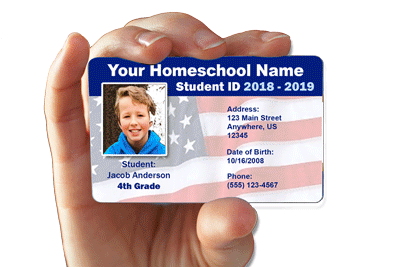Welcome to
Homeschool
Facts
Homeschooling Information and Resources

The purpose of this website is to share up-to-date information about homeschooling with parents and educators interested in the idea of homeschooling. If you belong to a homeschool support group, please check out the state-by-state listings to be sure your group’s information is current. (All homeschool support group listings are free.)
WHY PARENTS CHOOSE TO HOMESCHOOL
A report by the U.S. Department of Education, National Center for Education Statistics entitled “Parent and Family Involvement in Education Survey,” showed that just over 1.7 million children were homeschooled during school year 2011-12. In response to the survey question “Are you concerned about the school environment, such as safety, drugs, or negative peer pressure,” 91% of the parents participating in the survey indicated that this issue was important in making the decision to homeschool their children. Another 77% expressed a “desire to provide moral instruction” to be a primary incentive. 74% indicated their dissatisfaction with academic instruction at other schools; 64% intended to use the homeschooling experience to provide religious instruction; and another 44% stated a “desire to provide a nontraditional approach to [their] child’s education.” 15% of the survey participants reported turning to homeschooling based on “other special needs” or “a physical or mental health problem” as the driving force in their education-related parental decision making. An additional 37% expressed “other reasons” that were not included in the study.


Other top reasons parents give for choosing to homeschool their children include:
- The high cost of private schools;
- The convenience of flexible scheduling, especially for parents who work from home and those who travel for their jobs;
- The opportunity to further challenge their children;
- The ability to travel whenever needed or desired;
- The opportunity to challenge gifted children while maintaining appropriate developmental levels; and
- The genuine desire to spend more time with their kids as they grow and learn.
HOW DO HOMESCHOOL STUDENTS
COMPARE ACADEMICALLY?
Socialization: The level of socialization homeschool students enjoy is entirely dependent on how the adult(s) in charge of the experience coordinate and manage opportunities for outside activities. Not everyone who homeschools takes the time to plan extra-curricular activities or involve their children in the community. Generally speaking, homeschool kids go on field trips with other homeschooled kids; attend topically interesting classes and seminars at local museums, zoos, and other places; start home businesses; play sports and are involved in art, drama and music lessons. The Public Broadcasting Service (PBS) “PBS Parents” Web page quotes National Home Education Research Institute president Brian Ray who believes that socialization is not a problem for the vast majority of homeschool students. Mr. Ray reports that “Research shows that in terms of self-concept, self-esteem and the ability to get along in a group, homeschoolers do just as well as their public school peers.”
To assist in the student learning and socialization process, IVLA (www.internationalvla.com) offers homeroom sessions through a mentoring program designed to give full-time students the opportunity to interact and build relationships with other students.
A 2011 small-sample study led by Sandra Martin-Chang of Concordia University* and using Canadian participants, found that “structured homeschooling” – where clear education goals are set and structured lessons in the form of either purchased curricula or self-made lesson plans (or a combination of the two) – produced academic performances much better than those achieved by same-level students in public school. Specifically, in five of seven test areas (word identification, phonic decoding, science, social science, humanities) structured homeschoolers tested at least one grade level ahead of public schoolers. They were almost a half-a-year ahead in math, and slightly, but not significantly, advanced in reading comprehension.
However, in every test area, homeschoolers experiencing an “unstructured” learning environment – where premade curricula and structured lesson plans are rarely or never used – achieved lower scores than did “structured” homeschoolers. In fact, in five of the seven subject areas, where the structured homeschoolers performed above grade level, the unstructured homeschoolers performed below grade level. In addition, the study reported that unstructured homeschoolers also performed worse than the public school kids did, though by a small margin.
The Huffington Post Teen page for 3/28/15 cites a U.S. News and World Report article published in 2012 based on statistics provided by the National Home Education Research Institute. These statistics indicate that more than 2 million U.S. students in grades K-12 were home-schooled in 2010, accounting for nearly four percent of all school-aged children. The same Huffington Post page notes that, according to a study that compared graduation rates at one doctoral university from 2004-2009, students coming from a home school graduated college at a higher rate than their peers — 66.7 percent compared to 57.5 percent — and earned higher grade point averages along the way (Cogan, Michael; “Exploring Academic Outcomes of Homeschooled Students,” University of St. Thomas, 2009).



HOMESCHOOL RESOURCES

State Laws

Support Groups

Colleges

ID Cards for Homeschoolers
ID Cards for Homeschool (ID Cards for Homeschool) is an initiative program that allows you to build a custom ID card for you and your homeschooling child/children. It is recommended by law enforcement that your child has some form of ID in case of emergencies. On top of a student ID card, homeschooling parents are considered educators. Because of this, parents should have documentation that identifies them as such, for several beneficial reasons.
Teens and the Army
Whether you are thrilled or have instant anxiety, it can be a little jarring if your teen says they want to go into the Army Reserves. You may be feeling a mix of emotions, which is completely fine! This is an exciting and of course, scary, time to be a parent so you...
Kids and Injuries
It is nearly inevitable that one or all of your children will end up with some type of injury, most likely related to sports. It may not be a serious injury, such as a broken bone, but at the very least a sprain or hyperextension may happen while your children are...
Educational Terminology
If you are considering homeschooling your child or children in the near future, it is always best to be as prepared as possible. Teaching at home may seem like a breeze, but it can be tricky juggling all the coursework of multiple children in the home. It also comes...


